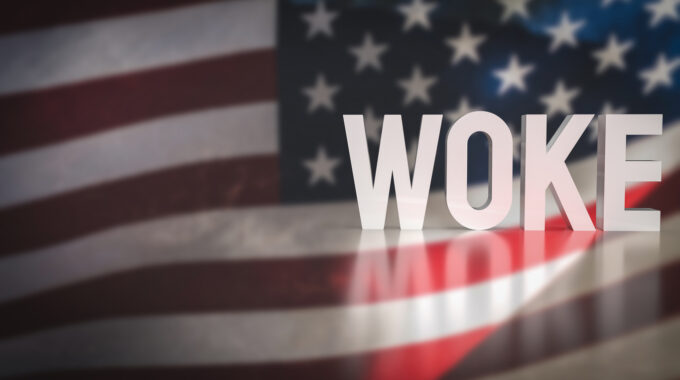Myth: Trickle Down Economics Works Since the days of Ronald Reagan, many have promoted the…

Is DEI a dirty word?
Diversity, equity and inclusion (DEI) pushback
DEI pushback is real. Fortune magazine recently published an article titled “The anti-DEI movement has gone from fringe to mainstream. Here’s what that means for corporate America.” It had this to say:
When DEI advocates don’t make space for good faith questions posed by people who are seeking to understand, we create a vacuum of information that is right now being filled by a more threatening and factually incorrect set of answers: that creating a level playing field for one group means taking opportunity away from another (it doesn’t), that any consideration of someone’s background is inherently discriminatory (it isn’t), that DEI is about giving unfair advantages to marginalized groups instead of correcting for real systemic inequalities (it’s not).
Systemic racism, unconscious bias and our political arena each has a unique impact on the DEI work that many of us are doing.
 At Spectra Diversity, we try to keep abreast of what DEI consultants are experiencing and what their corporate clients are doing. We meet with people daily who are working in this field and their experience informs our work. One of the concerns of those within organizations is the fear of being sued. We turned to one of our colleagues, Nance L Schick, Esq. of Third Ear Conflict Resolution based in New York City for insight. Her firm focuses on employment law and mediation. She works with CEOs and HR leaders on a regular basis.
At Spectra Diversity, we try to keep abreast of what DEI consultants are experiencing and what their corporate clients are doing. We meet with people daily who are working in this field and their experience informs our work. One of the concerns of those within organizations is the fear of being sued. We turned to one of our colleagues, Nance L Schick, Esq. of Third Ear Conflict Resolution based in New York City for insight. Her firm focuses on employment law and mediation. She works with CEOs and HR leaders on a regular basis.
Nance has seen that a lot of the DEI pushback has come from the concept of equity, which is so hard to quantify in most people’s minds. Does it count if you are a white male, but you grew up very poor without your parents? What does count? When we talk about inclusion, there’s been a long tendency to reach across to the people that have been oppressed because of the visible parts of their diversity (race/ethnicity, gender identity, age, etc.). And there are others who have long felt excluded, too, and they feel like they have been left out again. They’re asking, what about me? I grew up with a parent in jail, but I’m white. Or we were wealthy, but my parents were alcoholics. Or I grew up with my grandmother, do I count?
Nance clarified, “I think it’s when we’re talking about the inclusion piece, there are groups of people, including the disability community, that feel like they haven’t been included in these conversations…[T]he inclusion piece isn’t there. People are saying, how do you determine who’s included and quantify what’s enough?”
Alex Kapitan of Radical Copyeditor says, “you don’t know what you don’t know.” There is so much information to be learned about diversity, equity, and inclusion. DEI education is a journey. And you have to be compassionate with yourself while you embark on the journey. You don’t read one book and all of a sudden all your unconscious bias is gone. You don’t attend a workshop and suddenly you’re able to unravel all systemic racism you encounter.
So to answer the question posed by this post, “Is DEI a dirty word” our answer is no. It should not be and here are three reasons why it isn’t.
DEI Guidance
EEOC laws apply nationwide. Some states and localities also have laws relating to diversity, equity and inclusion, especially in the workplace. So here is some guidance:
Most law firms are essentially small businesses. Many will specialize in a type of law (family law, criminal defense, personal injury etc.). If you are a small business, it is a good idea to develop a relationship with employment counsel. Look for one that will advise on an ad hoc basis, and not take a huge retainer. Some will offer flat fees or flexible payment plans. The important part is to find an employment lawyer in your jurisdiction. Nance clarified, “You have federal EEOC laws (the civil rights laws), but you still have to deal with the state and local laws, too. And with the pandemic, if you have the kind of business where you have employees working remotely, the jurisdiction could be anywhere, right? I’ve got clients that now need legal counsel in South Africa, Canada, and across the U.S. They’re dealing with even wider divergences in law.”
An employment lawsuit can be costly, not just in terms of money, but in reputation. This can limit your customer base and selection of employees.
Get one step ahead by finding an employment lawyer before you need them.
DEI Relief or Comforting Thoughts
The trial of public opinion can be harsher than the trial in an actual courtroom. Nance offered, “I tell my clients this all the time, the number one thing they must do whenever there’s any challenge on any front is step back. Because if they’re responding on the spot, they get defensive. And why is that? Especially with small and medium business, it’s because they’re usually overworked, understaffed, underfunded, right? Under supported in a variety of ways. And that’s exactly when they’re going to make mistakes. Now I’ve got them trained that they’ll just reach out and go, okay, so this employee came in again with another request for sick pay. This is their ninth time in two months, and they know how to play the game. And so, the number one thing I have to do for them right then is calm them down so that they don’t step foot in a disability discrimination case. Or a denial of valid sick pay. So, rule number one, stay calm.”
One way to stop worrying about DEI lawsuits in your company, is to step back from the news. Take a break from social media. It’s like having too much sugar. It’s a bad thing. The way the algorithms work, they’ll heighten your tendency to be reactionary. Take a pause.
“Between stimulus and response, there is a space. In that space is our power to choose our response. In our response lies our growth and our freedom.” Victor Frankl
DEI Motivation
Recent research shows that 10% of companies are still doing DEI – they’re still on the bandwagon that took off after the murder of George Floyd. Ten percent of companies looked at the Supreme Court ruling (Students for Fair Admissions, Inc. (SFFA) v. President & Fellows of Harvard College (Harvard) and SFFA v. University of North Carolina (UNC)) and decided that DEI efforts could be safely abandoned.
That means that 80% of organizations are sitting on the fence.
In some cases, DEI training is being relabeled as civility training or respect training. At Spectra Diversity, our assessment does data collection and then lets the data speak for itself. It is hard for a CEO to argue that their Black employees approve of management’s approach to inclusion, when the data shows otherwise. So how do we reframe diversity, equity and inclusion to convince the 80% of fence sitters that DEI work is not only the right approach, but the approach that makes the most business sense?
Nance had this to offer: “I think where we’re now moving is toward context, intent. This is what we deal with in the law. Intent. We take evidence and attempt to put it in the intended context. And sometimes it’s still harmful because it’s negligent…[W]e are all still human, and we’re going to screw up. We’re all biased. It’s hard to recognize [our biases], but to change them is even harder. So, what we’re doing is calling people into awareness and then inviting them to make the change. This is where the persuasion piece comes in. It’s classic mediation. Like figuring out not just what the workplace is interested in, but what is that individual interested in – what are their needs. I know that can be overwhelming, but I can tell you we are in the middle of a new labor movement. If you’re an employer and you’re not acknowledging the individual, they’re demanding certain ways of working, and you’re not going to have anybody to work for you. I feel like if people start being more solutions-focused instead of getting defensive [when they’re uncomfortable], we can really move through all of this. It’s going to be uncomfortable at times, but all growth and healing is.”
In summary, please stick with your diversity, equity and inclusion efforts. It’s important for you and your organization. DEI should not be a dirty word.
Inclusive leaders recognize that it is imperative to identify what concerns might come up for all people around a particular issue or initiative. Considerations such as:
- what people are afraid of
- what they may be ashamed of
- and what they most likely will disagree with.
NOTE: Spectra Diversity has a 9-part webinar series designed for emerging DEI leaders and CEOs. It’s free. It’s informative. It tackles tough issues.
Sign up for Powering Inclusive Cultures: Measurement Matters. Episode one is January 22.
Webinar Registration
Spectra Diversity is always seeking to share information about diversity and inclusion topics. Please contact us if you have a need or a question.



